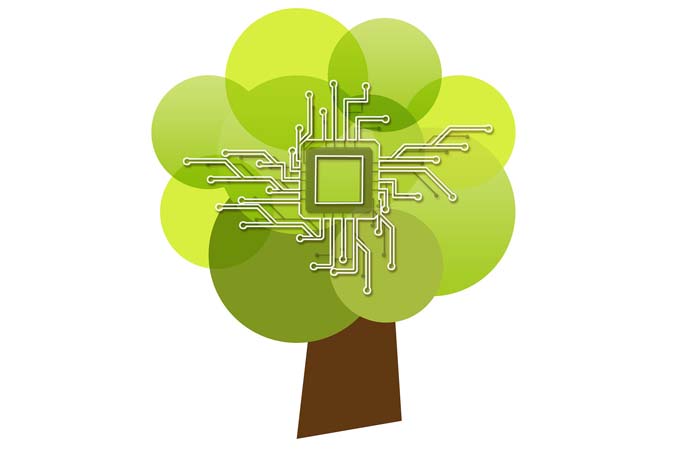Green IT: Sustainable IT as the key to competitiveness
Considering the effects of the climate crisis, the sustainability factor is becoming a crucial issue for our society. However, sustainable corporate management is new territory for many organizations - yet it offers the opportunity to retain young talent, save budget and remain competitive in the long term. In addition to corporate culture, the focus is on IT, as this guest article explains.

While the digitization of processes saves resources in individual companies, global digital transformation leads to a global exponential resource use. There is a simple reason for this: Increasing virtual workflows are generating ever greater volumes of data that are stored in data centers - which, depending on their size and constitution, produce more or less CO2 emissions. Studies show that data center operations already account for 2 percent of the world's energy.
It is all the more tragic when data is stored but neither analyzed nor used for the company's success. A "loose - loose" situation arises. The choice of storage location for data, the form of the data and the right data platform are therefore a decisive step both for corporate success and for preserving the environment. This lends immense importance to green IT, i.e., environmentally compatible information and communications technology (ICT) services and products and sustainable use.
Initiatives, measures and certifications
Measures such as the German government's Green IT initiative or the European Ecodesign Directive have succeeded in keeping electricity consumption by IT in Germany at least relatively constant since 2017 - around two percent of the country's electricity consumption. But blockchain technology or artificial intelligence (AI) are driving up the energy demand of data centers. According to a Study by The Shift Project of 2019, however, emissions from the digital economy could already account for eight percent of total CO2 emissions in the next five years.
To counteract such scenarios, companies need to pay attention to their carbon footprint - especially in data centers. For example, a lot of energy can be saved in the cooling of servers, because lighting and outdoor cooling can be automated and the location of the servers also plays a role - as far apart as possible and in a cool place. Overall, a power consumption effectiveness of 1.2 or less should be targeted. In addition, many processes and applications can now be moved to the cloud. The energy supply for cloud systems tends to be lower due to the size scaling. In principle, companies can also pay attention to energy efficiency certifications when purchasing. Organizations such as TCO Certified or Energy Star, for example, test and certify factories and devices with regard to their efficiency and sustainable practices.
What role does Green IT play in companies?
According to a Study by Capgemini However, green IT currently plays only a minor role in most companies - only one in five companies with a sustainability strategy takes the climate contribution of IT into account. This is due in part to a lack of expertise, according to a total of 53 percent of respondents. And only 43 percent of executives know the amount of CO2 emissions their IT generates. Only 18 percent have a comprehensive strategy with timelines and concretely defined goals; only 6 percent are already implementing sustainable IT. And this will not change in the next few years: only 22 percent of companies plan to reduce their CO2 footprint by more than a quarter through sustainable IT. And this despite the fact that Data centers worldwide are estimated to consume about 3 percent of electricity and are responsible for about 2 percent of total greenhouse gas emissions.
Sustainable data use determines competitiveness and staff attrition
Companies have recognized the relevance of sustainable business decisions based on data. According to a Study by Cloudera more than one-fifth (21 percent) of decision-makers in German companies are already putting greater investment in environmental, social and governance (ESG) ahead of developing new products and services (18 percent) or maintaining or increasing their profits (19 percent). This is not entirely altruistic, however, because in addition to the ecological necessity, the economic benefits of sustainable IT cannot be dismissed - both in terms of the bottom line and through social reputation, brand image and customer loyalty.
The Cloudera study shows this in detail: when asked what the impact would be if their company did not start using data to make more sustainable business decisions over the next 3 years, nearly half of business decision makers (47 percent) said they expected growth to decline. Other consequences include increased pressure on the board and loss of business. Most interestingly, 27 percent of decision makers believe that employees will leave the company - a crucial criterion in times of skills shortages.
To the author:
Philippe Picalek, Regional Vice President Switzerland at Cloudera, a cloud service provider. The Cloudera Enterprise Data Cloud processes all data, regardless of where it is stored - from the edge to AI applications.









